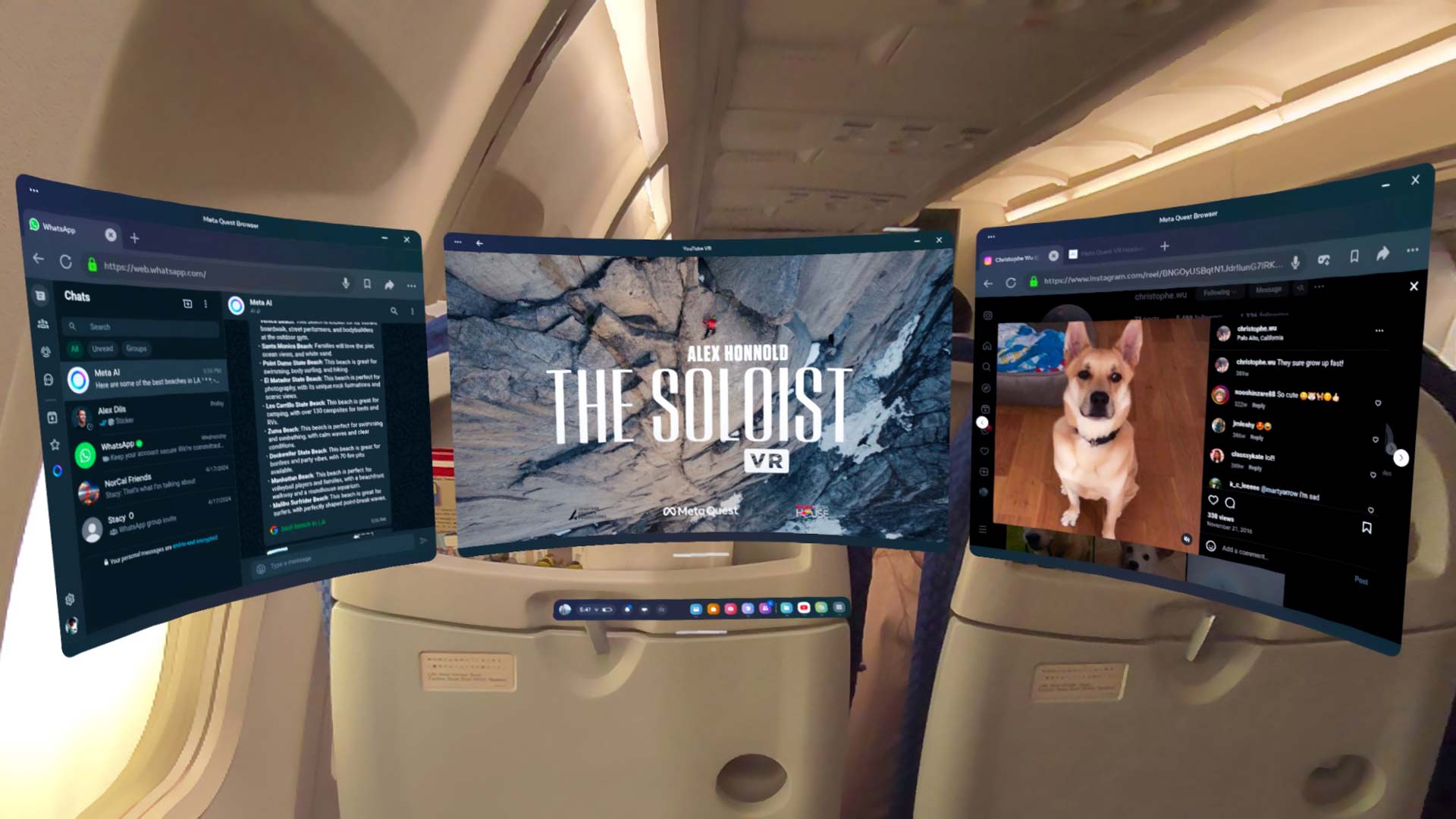Meta is finally rolling out the long-awaited travel mode for Quest 2 and Quest 3, ostensibly hacking away another unique feature from Apple Vision Pro.
Update (May 13th, 2024): Meta says the new Quest 2/3 Travel Mode was specially tuned to account for the motion of an airplane, even when it comes to looking out the window. The company says in a blog post it will be updating Travel Mode in the future to work with other modes of transportation, such as trains.
It’s being pitched as an experimental feature for now, so to activate Travel Mode you’ll need to select it in the Experimental section of the Settings menu, which will then let you toggle Travel Mode on and off from Quick Settings.
The original article announcing Travel Mode follows below:
Original Article (January 25th, 2024): Airplanes seem like an ideal place to dive into VR, as you can switch out the cramped environment of the cabin for a giant movie theater, or whittle away the hours browsing the web on a massive screen—something that shouldn’t bother your seat mates too much. Although Quest’s tracking is one of the most reliable out there, it still has trouble in moving vehicles like airplanes and cars. Meta is apparently working to fix that.
For anyone who’s tried to use Quest on an airplane, it’s basically only usable when you’ve reached a consistent altitude and direction. When you’re taxiing, banking, taking-off or landing, you’ll quickly find yourself being unwittingly jostled around in VR, making it distractingly unusable. Gain attitude, and you might find yourself falling through the virtual floor.
Responding to X (formerly Twitter) user Andrew Fox, Meta CTO Andrew Bosworth says the company is working on a way to make Quest work better for in-flight entertainment.
Is it really not possible to use Quest 3 in passthrough mode on a plane? pic.twitter.com/aIBB0s2MT5
— Andrew Fox (@afoxdesign) January 24, 2024
Here’s Bosworth’s response:
“No, we use an IMU to keep objects localized relative to your headset motion so moving vehicles represent a challenge (when they accelerate in any direction). We also use the cameras, of course, they work together as the IMU is higher frequency but lower accuracy. Working on it!”
The issue is basically the same for any optically-tracked VR headset on the market at this point. However, this hasn’t stopped companies from thinking of clever ways around it. Holoride, an Audi co-founded startup, partnered with HTC to hook its standalone Vive Flow headset into cars using a retrofitting device which accounts for the vehicle’s relative motion, letting users engage with a handful of licensed apps.
In 2021, Meta announced it was attempting something similar in a partnership with BMW, which would more accurately anchor virtual objects by hooking Quest’s tracking system into the car itself. Although the company issued an update on the research project in mid-2023, it’s still unclear when we’ll see it in the company’s consumer VR headsets.
Undoubtedly one of the biggest names to promise a solution to travel woes lately is Apple, as the company announced its $3,500 Vision Pro headset would include a ‘Travel’ mode, which Apple says can be used to “stabilize visuals for use on planes.” How this works is still a mystery at this point, although it’s possible the headset switches to a special tracking mode based purely on visual sensors while ignoring IMUs entirely. It would lead to less accurate tracking overall, but at least be useable in an airplane.
Could Meta be up to something similar? It’s likely. If the company wants to keep core feature parity with Vision Pro, which launches February 2nd, we may see something sooner rather than later. Of course, there’s no timeline on Meta’s efforts just yet, so we’ll be keeping an eye on Bosworth’s Instagram, as he regularly does Q&As there.
,
